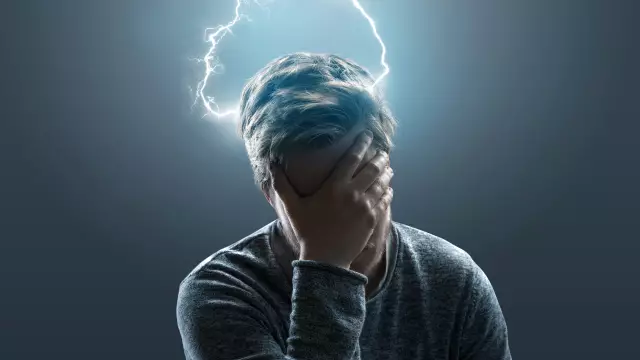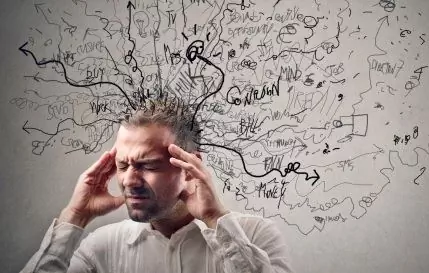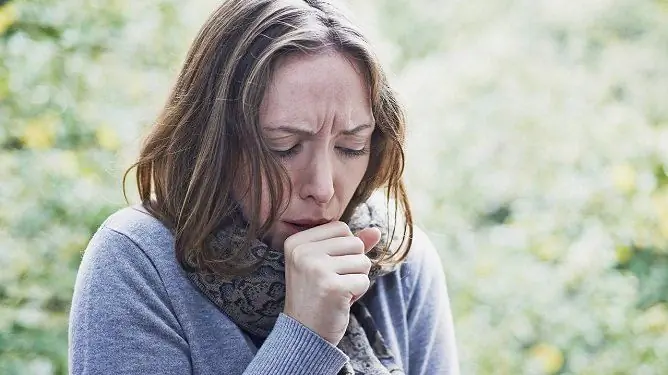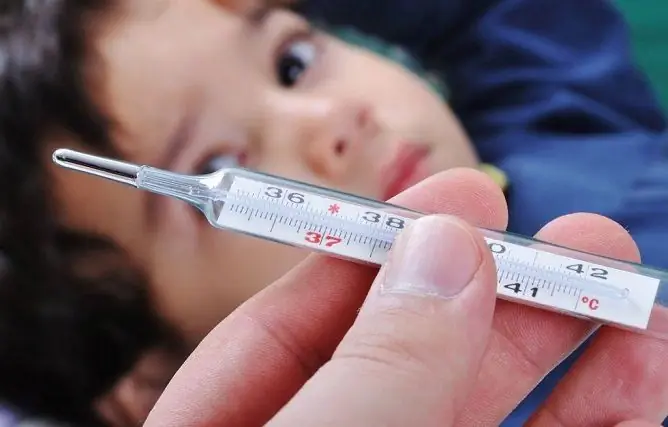- Author Rachel Wainwright wainwright@abchealthonline.com.
- Public 2023-12-15 07:39.
- Last modified 2025-11-02 20:14.
Severe stress

Any strong impact on a person leads to the inclusion of the protective abilities of his body, or stress. At the same time, the strength of the stimulus is such that the existing barriers cannot provide the required level of protection, which leads to the launch of other mechanisms.
Severe stress plays an important role in a person's life, as it neutralizes the effects caused by the irritant. The stress reaction is characteristic of all living things, but because of the social factor, it reached the greatest perfection in people.
Symptoms of severe stress
All types of such a reaction of the body are characterized by some general signs of burnout, which affect not only the physical, but also the psychological sphere of a person. The number of symptoms of severe stress is directly proportional to its severity.
Cognitive signs include problems with memory and concentration, constant worry and anxious thoughts, fixation only on bad events.
In the emotional sphere, stress is manifested by moodiness, irascibility, irritability, feelings of overload, isolation and loneliness, inability to relax, general despondency, and even depression.
Behavioral symptoms of severe stress include overeating or malnutrition, sleepiness or insomnia, neglect of responsibilities, isolation from others, nervous habits (snapping fingers, biting nails), and the use of drugs, cigarettes, and alcohol to relax.
Physical signs include headaches, nausea and dizziness, heart palpitations, diarrhea or constipation, loss of sex drive, and frequent colds.
It is worth noting that several other medical and psychological problems can also cause symptoms and signs of severe stress. If the listed symptoms are found, it is necessary to consult a psychologist who will give a competent assessment of the situation and determine whether these signs are associated with this phenomenon.
The consequences of severe stress
Under moderate stress, a person's body and mind work most efficiently, which prepares the body for optimal functioning. In this case, the goals are achieved without depleting the vitality.
Unlike moderate stress, severe stress remains a positive factor only for a very short time, after which it leads to disruptions in the normal life of a person.
The consequences of severe stress are serious health problems and malfunctions in almost all body systems: blood pressure rises, the risk of stroke and heart attack increases, the immune system is suppressed, and the aging process accelerates. Another consequence of such overstrain can be infertility. Anxiety disorders, depression and neuroses also occur after severe stress.
Many problems arise or worsen after a stressful situation, for example:
- Heart diseases;
- Obesity;
- Digestive problems;
- Autoimmune diseases;
- Sleep problems;
- Skin diseases (eczema).
The negative influence of stress factors can be avoided by increasing the level of stress resistance, using existing techniques, or with the help of drugs.
Ways to increase stress resistance
Help to increase stress resistance:
- Social connections. With the support of family members and friends, it is much easier to avoid severe stress, and if it does happen, then in the company of loved ones it is easier to cope with it;
- Feeling in control. A self-confident person is able to influence events and overcome difficulties, he is calmer and easier to accept any stressful situation;
- Optimism. With such a worldview, the consequences of severe stress are practically leveled, a person perceives changes as a natural part of his life, believes in goals and higher forces;
- The ability to deal with emotions. If a person does not know how to calm himself down, he is very vulnerable. The ability to bring emotions into balance helps to resist adversity;
- Knowledge and preparation. Understanding what awaits a person after severe stress helps to accept the stressful situation. For example, recovering from surgery will be less traumatic if you know in advance about its consequences, rather than waiting for a miraculous healing.
Methods for quickly relieving tension and stress
Some techniques can help you get rid of a lot of stress in a short time. These include the following methods:
- Physical exercise - jogging, cycling, swimming, dancing, playing tennis distracts from the problem;
- Deep breathing - concentration on your own breathing helps to forget for a while about the stress factor and look at the situation from the outside;
- Relaxation - promotes sound sleep and effectively relieves stress;
- Breaking away from everyday life - going on vacation, going to the theater or cinema, reading books, artificially creating images in your head, for example, a forest, river, beach, allow you to be distracted;
- Meditation - gives a feeling of peace and well-being;
- Massage is one of the most effective ways to relax and reduce the effects of severe stress;
- Reducing the pace of life - helps to look at the situation in a calmer environment;
- Revision of life positions - attempts to achieve unrealistic goals lead to nervous breakdowns and stress, and the inevitable failures at the same time only aggravate the condition.
Sedatives for severe stress
The safest sedatives for severe stress are herbal preparations (motherwort, valerian, mint). They are suitable for people who are able to control their own emotions and, by and large, can calm down themselves. But if the stress is prolonged, such drugs are not suitable. Herbal tablets are optimal for children, as they are free of side effects, do not cause addiction and do not stay in the body.
No less popular are bromine preparations, which are relatively safe, although they can accumulate in the body, causing bromism, manifested by apathy, lethargy, adynamia, and in men also a decrease in sexual desire.

However, the main sedatives for severe stress are tranquilizers, or anxiolytics. Tranquilizers remove feelings of fear and anxiety, reduce muscle tone, reduce the speed of thinking and completely calm down. Such drugs have dangerous side effects, the main of which are quick addiction, as well as a decrease in mental and physical activity. Anxiolytics are prescribed only by a specialist.
Another type of pill used after severe stress is antidepressants. Although they do not belong to sedatives, they can relieve tension and bring the emotional state into shape. Antidepressants have a strong effect on the central nervous system, helping to forget about troubles, but they cannot be taken without a doctor's prescription, since these pills are also addictive.
All methods are important in dealing with stress, but self-medication is not worth it. An experienced specialist will advise on the optimal treatment for each specific situation.
YouTube video related to the article:
Found a mistake in the text? Select it and press Ctrl + Enter.






